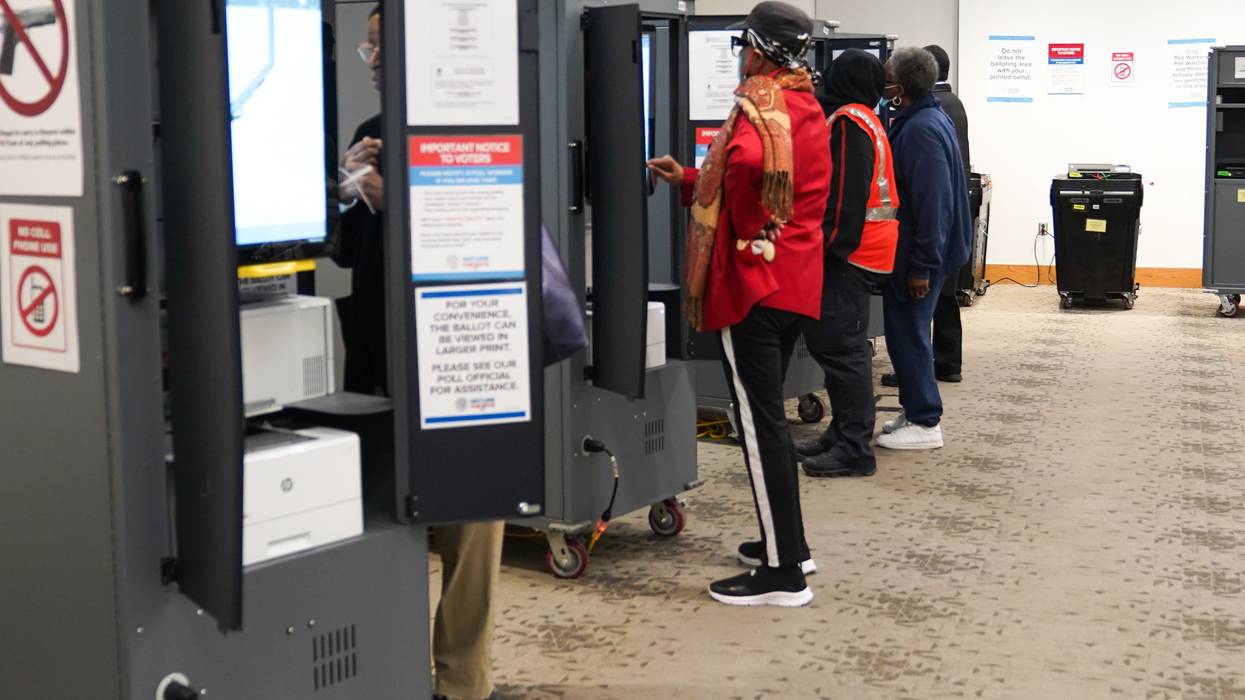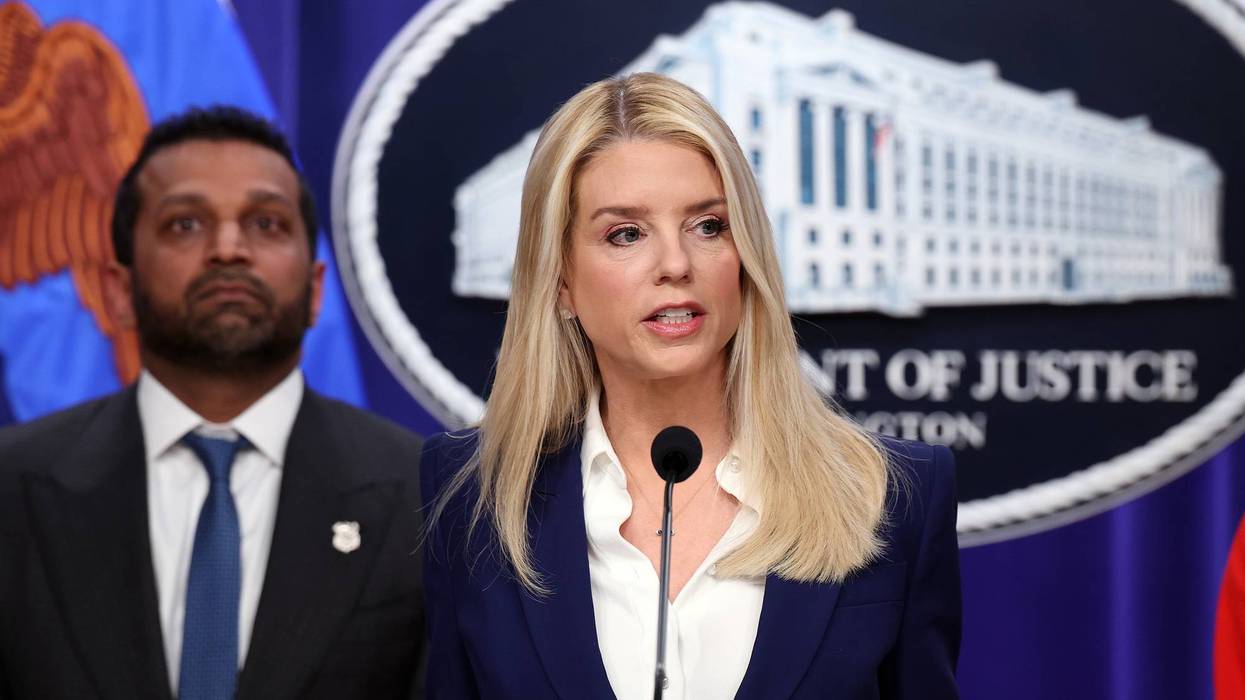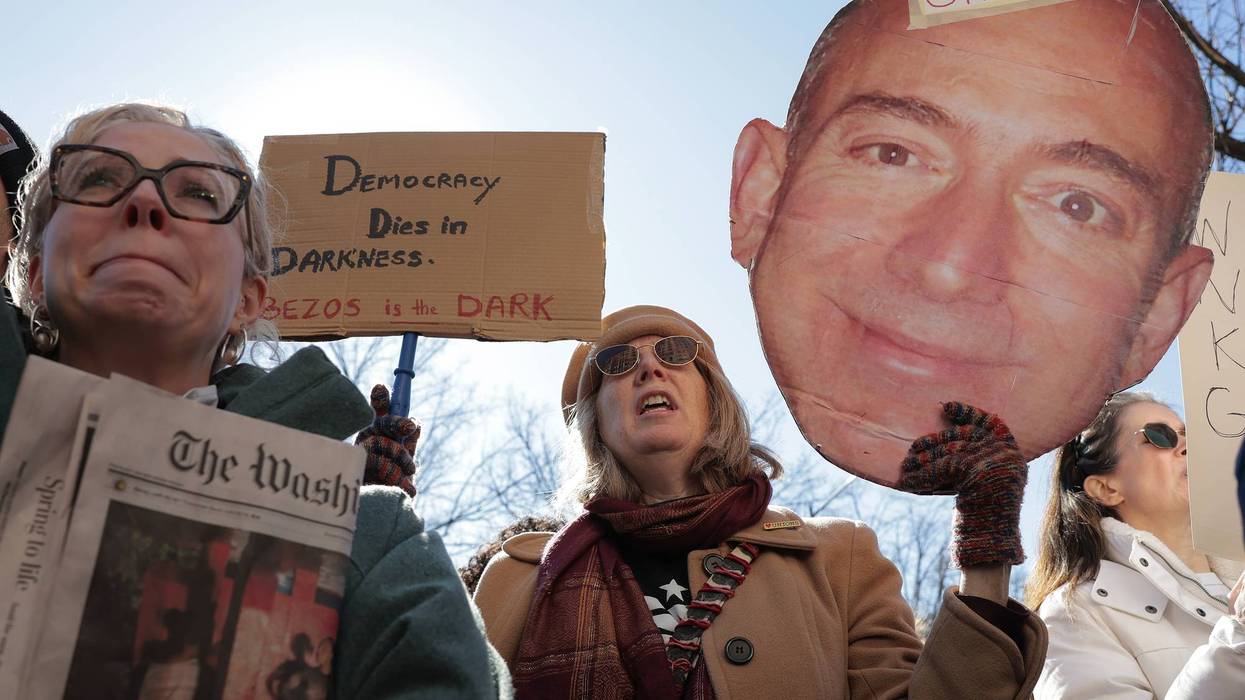Trump's Election-Emergency Plot Is Straight Out of the Authoritarian Playbook
Beware the normalization of the idea that if the electorate appears likely to choose “wrongly,” an emergency can justify changing the rules of democracy.
Recently, Steve Bannon told an audience:
And I will tell you right now, as God is my witness, if we lose the midterms… some in this room are going to prison—myself included.
Now, it looks like President Donald Trump and the people around him are seriously considering declaring an emergency to let them seize control of this November’s elections, according to reporting yesterday in the Washington Post:
Pro-Trump activists who say they are in coordination with the White House are circulating a 17-page draft executive order that claims China interfered in the 2020 election as a basis to declare a national emergency that would unlock extraordinary presidential power over voting.
Donald Trump and the lickspittles and criminals he’s surrounded himself with are in a panic. If Democrats take the House or Senate in this November’s elections, they’ll have the power of subpoena so the regime’s crimes and corruption will be laid out for everybody to see. Some could even go to prison, including Trump himself.
He’s been basically screaming, “Do something!!!” at Republicans for the past year. It started publicly with his demanding that Texas and then other red states further gerrymander their elections to reduce the number of Democrats in the House.
If you’ve studied history—and you know I have—that’s the moment when the hair on the back of your neck should stand up.
In red states they’re purging voters in blue cities from the rolls like there’s no tomorrow, and the GOP is trying to recruit “election observers” to challenge signatures on mail-in ballots on an industrial level. As reporter Greg Palast pointed out, this is how Trump took the White House in 2024; if it hadn’t been for over 4 million (mostly Black) fully qualified US citizens being purged or having their ballots rejected after technical challenges, Kamala Harris would be our president today.
But given how badly Trump’s doing in the polls today, even all these efforts don’t look like they’ll be enough to keep the House and Senate in Republican hands.
So now Trump toadies like Jerome Corsi (the creator of the Birther movement and the Swift Boat slurs, who’s been a guest on my program multiple times) have an idea: Just imitate what Vladimir Putin, Viktor Orbán, Adolf Hitler, and other dictators have done to hang onto power when they get unpopular: Declare an emergency and use it to rig the election.
Yesterday, The Washington Post detailed how MAGA-aligned activists are now openly discussing manufacturing or exaggerating a national emergency to justify Trump’s agents in the federal government to interfere in this November’s elections.
These aren’t fringe anonymous trolls on some obscure message board; they’re people operating in proximity to the president of the United States. Corsi arguably destroyed John Kerry’s chances in 2004 and lit the Birther fuse that catapulted Trump into political fame.
And they’re floating the idea that if normal democratic processes don’t produce the “right” outcome, they could help create a fake crisis to seize control of the election nationally.
If you’ve studied history—and you know I have—that’s the moment when the hair on the back of your neck should stand up.
Because this isn’t new, creative, or even uniquely American: It’s straight out of the authoritarian playbook.
When political actors like Corsi begin talking openly about declaring an emergency to override or interfere with elections, they’re not blowing smoke: They’re testing a classic dictator’s narrative.
In 1933, Germany’s parliament building, the Reichstag, went up in flames at the hands of a mentally ill Dutch communist who was probably maneuvered into the act by the Nazis. Adolf Hitler declared it “proof” of an existential communist threat. Civil liberties were suspended overnight. Gone in the blink of an eye were freedom of speech, freedom of the press, and the right to assemble as Hitler’s goons began to round up his political opponents and throw them into his new concentration camp at Dachau.
Elections were technically still held, but under conditions so distorted they no longer qualified as free or fair in any meaningful sense, and the so-called “temporary” emergency became Hitler’s legal bridge to a permanent dictatorship.
Similarly, in Turkey in 2016, elements of the military tried to pull off a coup against Recep Tayyip Erdoğan while he was out of town. Erdoğan declared a national state of emergency and then kept it in place permanently. Tens of thousands of protesters were arrested. Judges and teachers were purged from their jobs, and media outlets were closed down for being “fake news.”
While emergency rule was in effect, Turkey held an election that transformed its parliamentary democracy into a hyper-presidential system tailored to give virtually all federal power to Erdoğan himself. It was the end of democracy in Turkey.
Vladimir Putin’s rise offers another variation. In 1999, a series of apartment bombings killed hundreds of Russians and the Kremlin blamed Chechen terrorists. The attacks propelled Putin, then a relatively unknown prime minister, into the presidency on a wave of fear and fury.
Putin then declared a state of emergency that expanded his police powers, gave him tighter media control, and let him seize control of the elections process. In the years since then, elections in Russia have become ritual rather than reality. The ballots are printed every few years, and the votes are counted, but the outcome is never in doubt.
Viktor Orbán in Hungary shows yet another model. He declared a “state of crisis” over migration by Syrian refugees in 2015 and kept renewing it long after migration levels collapsed. During the Covid-19 pandemic, he got the parliament to give him the authority to rule by decree on an indefinite basis; it’s still in effect.
As a result, elections still happen (there’s one coming up), but the media landscape was completely taken over by Orbán-friendly billionaires (see: CBS, WaPo, LA Times, Fox “News,” Sinclair, Wall St. Journal, NY Post, and 1,500 right-wing radio stations). Orbán didn’t need to cancel Hungary’s elections; he simply reshaped the legal and political environment in which they happened.
There’s a common thread in all of this. The crisis wannabe dictators inevitably declare—real, exaggerated, or cynically manipulated—become the justification for seizing extraordinary powers. Those powers narrow dissent, intimidate opponents, and functionally rig the elections.
That’s why this shocking new reporting in the Washington Post is so alarming. When political actors like Corsi begin talking openly about declaring an emergency to override or interfere with elections, they’re not blowing smoke: They’re testing a classic dictator’s narrative.
They’re trying to figure out—and will learn from the national reaction to this Post reporting—whether they can persuade the public that normal election processes are too dangerous to trust. After all, in each of the cases I listed above, the machinery of democracy was used to hollow out democracy itself.
And they may not even have to manufacture an emergency: if Trump can sufficiently provoke Iran, they may activate their proxy network around the world and in the United States, and we could be facing a genuine crisis on the order of 9/11. This is one of the few ways to make sense of today’s massive military buildup in the Middle East.
The danger here isn’t just a fabricated catastrophe or a retaliatory strike by Iran, although those are pretty damn severe. It’s the normalization of the idea that if the electorate appears likely to choose “wrongly,” an emergency can justify changing the rules of democracy.
This plot will only be stopped if it’s widely reported and an outraged public rises up in opposition.
History shows us, over and over again, that when a nation loses its democracy to an aspiring autocrat, the language and strategy used is always the same. “The nation is under threat.” “The moment is an emergency.” “Normal rules must be suspended—just temporarily—to save the country.”
And in every case, “temporary” turned out to be the most dangerous word of all.
We’re now at that moment where influential figures are publicly contemplating that path, and the lesson from history isn’t subtle. The real emergency, in a constitutional republic, begins when leaders like Putin, Orbán, Erdoğan and Trump—and their toadies like Corsi, Pam Bondi, Kristi Noem, and Tulsi Gabbard—decide that elections themselves are the problem.
Multiple observers have noted that this plan is grossly unconstitutional. But so were Trump’s tariffs (which also used the International Emergency Economic Powers Act emergency authority as their rationale), and the Supreme Court let him run with them for almost a year before stopping him.
Similarly, Immigration and Customs Enforcement goons kicking in people’s front doors and smashing their car windows to drag them off without a judicial warrant is a blatant violation of the Fourth Amendment to the Constitution, but Trump’s agents continued to do it every day. Something being against the law or the Constitution has never stopped our convicted felon-rapist-insurrectionist president in the past.
This plot will only be stopped if it’s widely reported and an outraged public rises up in opposition. Call (202-224-3121) your elected representatives—Democratic and Republican—and let them know you’re onto this plot and won’t tolerate it. And that if they have any fidelity left to the Constitution and American values, they won’t either.


